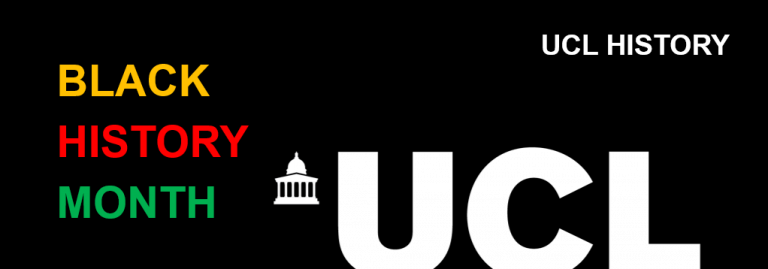
UCL History students Adila & Britney offer their reflections as students studying Black History at university; both were students in the 2nd-year undergraduate Research Seminar Black Atlantics in the Global South in the 2019-2020 cohort.
Adila
Black History is so vast, rich and complex that studying a small branch of it as 'Black Atlantics in the Global South' was immensely eye-opening and impactful - both socially and intellectually. Finding some links in my research in the political agency of Black maroon societies (communities of people who escaped enslavement, living independently of plantation societies) in the 16th and 17th centuries to the Black Lives Matter movement today, showed me just how important it is to understand the impact of Black History on our societies and how it shapes and adds meaning to the lives of so many.
My studies in Black History barely touched the surface in what is a fascinating and inspiring branch of History that has deep historical and global connections that I encourage everyone to look into. However, it is clear that much work needs to be done to better represent and integrate the history of the many and not just the few – especially in our own department, discipline, and institution. Undoubtedly, de-colonising the curriculum is a good way to start!
Adila is a third year BA History student in the department, the Student Facilitator for the History BAME Network and also a member of the UCL History BAME Network Community, which aims to provide mentoring and support for students in the department.
You can read Adila's essay from the 'Black Atlantics in the Global South' Seminar here.
Britney
Spending my Second year in a research seminar about Black History was eye-opening for me. It was my first time learning about Black History that was not confined to an assembly or single topic. I was presented with primary sources, such as diaries, written by Africans, Mulattos, Creoles, and others within the diaspora. Although I used sources from the 17th and 18th centuries in my project, the interesting thing about Black History is that a lot of it has real relevance today. So, I found spending a year on a Black History to be invaluable. During the last few months, the Black Lives Matter (BLM) movement has spread across the globe. This seminar supported the notion that Black Lives Matter because its re-focused Black History on Africans and the African continent. We read about Black History not just in relation to colonialism or slavery in the Americas. It is quite shocking that as a class it had to be highlighted to us that black lives existed before Europe’s first encounters, and that African Kings, Queens and peoples were not only passive participants.
I believe de-colonizing the curriculum is one of the most important tasks for this subject during the next decade. But there needs to be more BAME history undergraduates, and subsequently teachers and academics for this to happen. The Euro-centric and North American perspective needs to be challenged by minorities so our historiography can gain greater depth. In secondary school lessons about WWII and Winston Churchill, for example, Churchill’s white supremacism should be a starting point, rather than a side note. Britain needs to highlight and discuss the parts of history that it is not proud of. The un-biased covering of topics in secondary education would only serve to encourage more students into studying history at a higher level. This would eventually diversify the field and therefore strengthen both historical research and discussion.
Britney is a third year BA History student in the department and also a member of the UCL History BAME Network Community, which aims to provide mentoring and support for students in the department.
You can read Britney's essay from the 'Black Atlantics in the Global South' Seminar here.
If you would like to read more about Black History, our new Black History Resources Page might be a great place to start. This page includes a specially collated list of digital resources as recommended by our wonderful staff and students.
If you would like to read more about what the Department is doing to promote Equality, Diversity and Inclusion (EDI) then please visit our website here or contact our inclusion lead Dr Rebecca Jennings. The Department has a dedicated EDI Committee which all staff and students are welcome and encouraged to get involved with (email Dr Jennings for further details).
 Close
Close

